
LUCY PREBBLE’S The Effect was a big hit at the National nine years ago. It is back there now in a strong revival by Jamie Lloyd in a radically reconfigured Lyttelton. Seeing it a second time, I was struck by its intellectual power and its relation to other plays that question modern medical practice. As do Joe Penhall’s Blue/Orange and Harold Pinter’s The Hothouse, which Mr Lloyd once directed, it asks how much faith we should place in doctors and institutions that treat patients as human guinea pigs.
Miss Prebble’s set-up is clear. Tristan, who hails from Hackney ‘before it fell’, and Connie, a psychology student from Canada, agree to take part in a four-week trial of an anti-depressant drug. In their isolation, they find a mild flirtation turning into a passionate fling, but they are never sure whether this is genuine love or the result of dopamine. The medics in charge are also bewildered. Lorna, who is supervising the experiment, feels she has lost control and Toby, the hospital’s head honcho, has total faith in the drug’s ameliorative powers.
Behind the play lurk big philosophical questions about the nature of love and depression. Can the former be artificially stimulated? Can the latter be medically remedied? If I read the play correctly, Miss Prebble is endorsing the power of human agency. Love, she implies, is ultimately the result of the heart’s affections.
The debate about depression is even more fascinating. Lorna, a working-class black woman, argues that it stems from social and economic conditions. Toby, her boss and ex-lover, clings to the power of pills to remedy a chemical imbalance. Although Miss Prebble is fair to both sides, I suspect her sympathies lie with Lorna.
この記事は Country Life UK の August 23, 2023 版に掲載されています。
7 日間の Magzter GOLD 無料トライアルを開始して、何千もの厳選されたプレミアム ストーリー、9,000 以上の雑誌や新聞にアクセスしてください。
すでに購読者です ? サインイン
この記事は Country Life UK の August 23, 2023 版に掲載されています。
7 日間の Magzter GOLD 無料トライアルを開始して、何千もの厳選されたプレミアム ストーリー、9,000 以上の雑誌や新聞にアクセスしてください。
すでに購読者です? サインイン
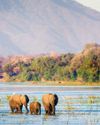
A trip down memory lane
IN contemplating the imminent approach of a rather large and unwanted birthday, I keep reminding myself of the time when birthdays were exciting: those landmark moments of becoming a teenager or an adult, of being allowed to drive, to vote or to buy a drink in a pub.
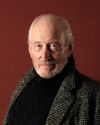
The lord of masterly rock
Charles Dance, fresh from donning Michelangelo’s smock for the BBC, discusses the role, the value of mentoring and why the Sistine chapel is like playing King Lear
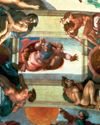
The good, the bad and the ugly
With a passion for arguing and a sharp tongue to match his extraordinary genius, Michelangelo was both the enfant prodige and the enfant 'terribile’ of the Renaissance, as Michael Hall reveals
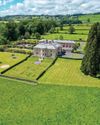
Ha-ha, tricked you!
Giving the impression of an endless vista, with 18th-century-style grandeur and the ability to keep pesky livestock off the roses, a ha-ha is a hugely desirable feature in any landscape. Just don't fall off
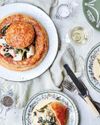
Seafood, spinach and asparagus puff-pastry cloud
Cut one sheet of pastry into a 25cm–30cm (10in–12in) circle. Place it on a parchment- lined baking tray and prick all over with a fork. Cut the remaining sheets of pastry to the same size, then cut inner circles so you are left with rings of about 5cm (2½in) width and three circles.
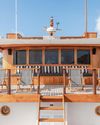
Small, but mighty
To avoid the mass-market cruise-ship circuit means downsizing and going remote—which is exactly what these new small ships and off-the-beaten track itineraries have in common.
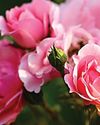
Sharp practice
Pruning roses in winter has become the norm, but why do we do it–and should we? Charles Quest-Ritson explains the reasoning underpinning this horticultural habit
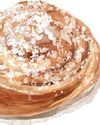
Flour power
LONDON LIFE contributors and friends of the magazine reveal where to find the capital's best baked goods
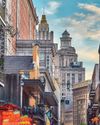
Still rollin' along
John Niven cruises in the wake of Mark Twain up the great Mississippi river of the American South
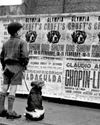
The legacy Charles Cruft and Crufts
ACKNOWLEDGED as the ‘prince of showmen’ by the late-19th-century world of dog fanciers and, later, as ‘the Napoleon of dog shows’, Charles Cruft (1852–1938) had a phenomenal capacity for hard graft and, importantly, a mind for marketing—he understood consumer behaviour and he knew how to weaponise ‘the hype’.